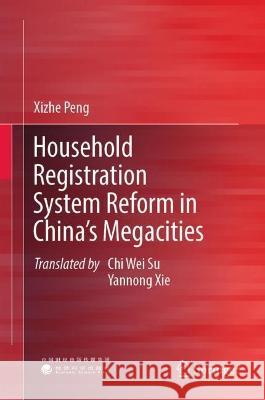Household Registration System Reform in China's Megacities » książka
topmenu
Household Registration System Reform in China's Megacities
ISBN-13: 9789819952915 / Angielski
Household Registration System Reform in China's Megacities
ISBN-13: 9789819952915 / Angielski
cena 484,18
(netto: 461,12 VAT: 5%)
Najniższa cena z 30 dni: 462,63
(netto: 461,12 VAT: 5%)
Najniższa cena z 30 dni: 462,63
Termin realizacji zamówienia:
ok. 16-18 dni roboczych.
ok. 16-18 dni roboczych.
Darmowa dostawa!
Kategorie BISAC:
Wydawca:
Springer
Język:
Angielski
ISBN-13:
9789819952915











